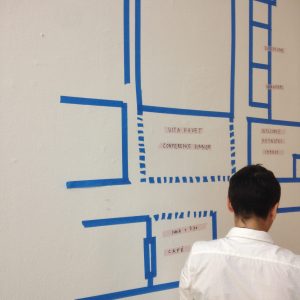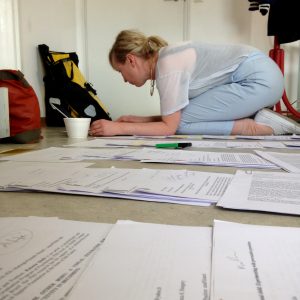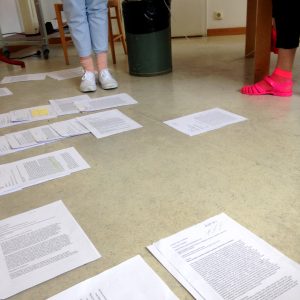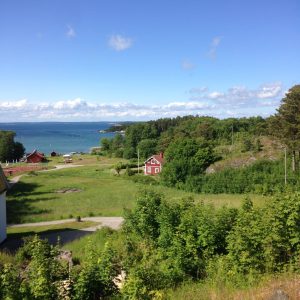Have you ever heard the sound of an egg rolling over a concrete floor? No, I haven’t. It is bouncing off another egg with a “crrrrrkk” that tells the tale of a calcium carbonate shell on calcium carbonate shell, a semipermeable membrane with two soft masses inside causing friction and momentum. Too complicated. An attempt to dispose of energy that otherwise would cause destruction. Shit. Then finally coming to a stop in a whole pile of salt, not to forget the butter in the crack. You clean up. Can you imagine this excellent sound? Listening.
Project description
Daughters of Chaos: Practice, Discipline, A Life was the 8th international Deleuze Studies conference, and the first to be held in Sweden
“In short,” Deleuze and Guattari explain “chaos has three daughters, depending on the plane that cuts through it: these are the chaoids – art, science, and philosophy – as forms of thought or creation.” The disciplines of philosophy, science and art are said to be the disciplines that enable the capture of what Deleuze and Guattari, in reference to the ancient Greek notion, call chaos. The daughters support the emergence of order out of fundamental chaos; they are like guides who assist us in making sense of things and in acting together to manifest new subjectivities, social relations and environments.
With a week-long writing camp on the island of Utö and a two-day conference and exhibition in Stockholm, the Daughters of Chaos made way for 130 selected scholars and guests.
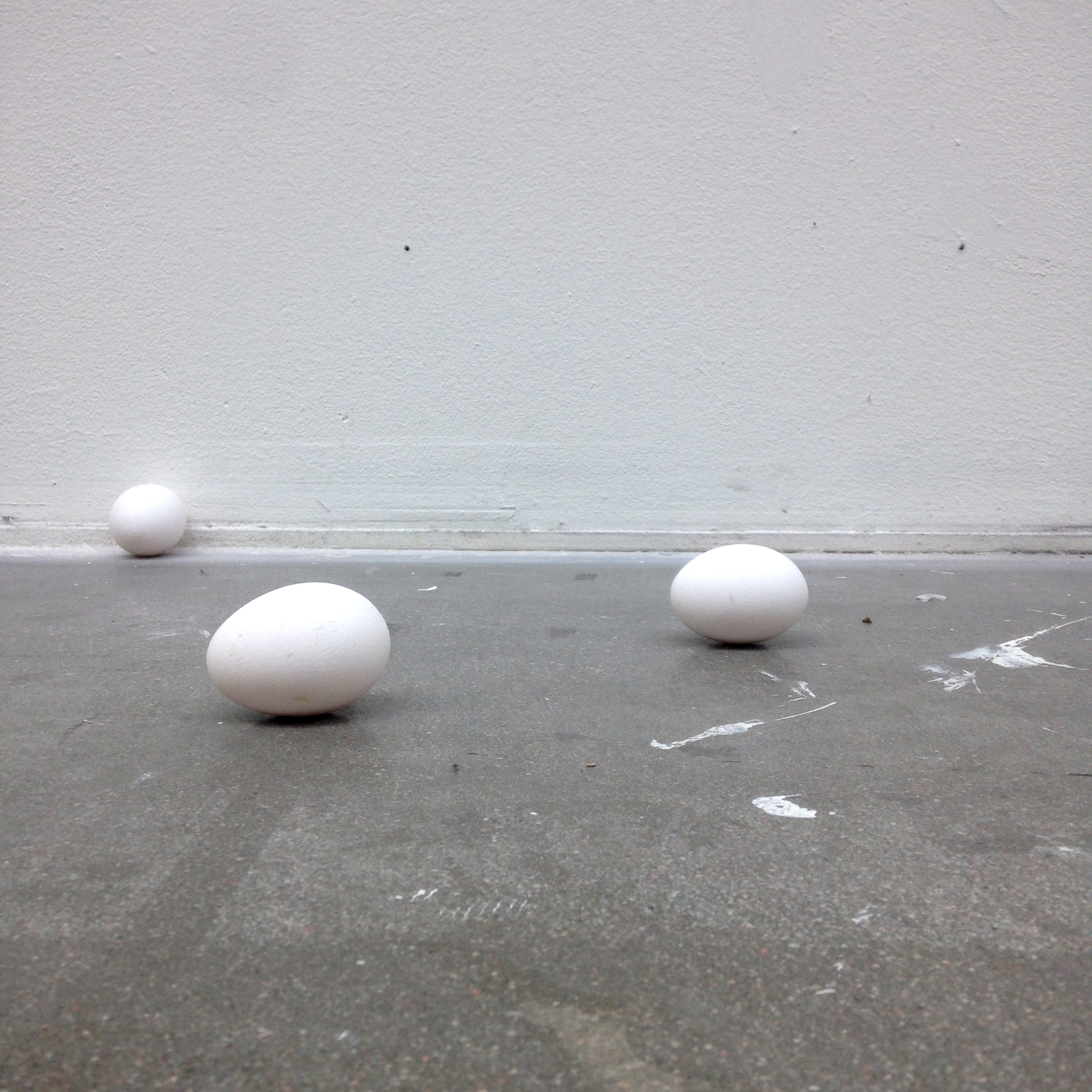
Title : Daughters of Chaos
Year : 2015, Stockholm
Role : Experience Designer, Curator
Is : conferencing
Should be : inspiring, informative, performative
Will : have had bad food no matter how hard you try
Conference
The Daughters of Chaos Deleuze Studies International Conference 2015 will take place between the 29th of June and the 1st of July 2015, at Konstfack: University College of Arts and Crafts (http://www.konstfack.se) south of the city centre of Stockholm, Sweden. It brings together the institutional support of Konstfack: University College of Arts, Crafts and Design; KTH (Royal Institute of Technology); Stockholm University; Södertörns Högskola; Stockholm University of the Arts. The conference has been generously funded by a Swedish Research Council FORMAS conference grant.
Confirmed Keynote Speakers:
Gary Genosko, Small Wheels of Pedagogy: Skateboard Schizoanalysis
Lisa Mazzei, Voice without a Subject
Simon O’Sullivan, Fictioning (after Deleuze) Against Control: Nothing is True, Everything is Permitted
Adrian Parr, Walking in the Dark
Daniel W. Smith, Deleuze on Technology and Thought
Fredrika Spindler, Subjectivities and lines of flight: on friendship
Camp
The five day intensive Daughters of Chaos Deleuze Studies 2015 Camp will be held between 22nd – 26th June 2015 and will take place in the Stockholm archipelago on the island of Utö.
Confirmed seminar and workshop guides:
Mindy Blaise; Marc Boumeester; Gary Genosko, Anna Hickey Moody; Adrian Parr; Julieanna Preston; Andrej Radman; Daniel W. Smith.
DAY ONE: Rethinking Institutional and Disciplinary Formations
DAY TWO: Environmental Disciplining
DAY THREE: Pedagogical Practices and Habits
DAY FOUR: New Material Practices and A Life
Links
daughtersofchaos.net


